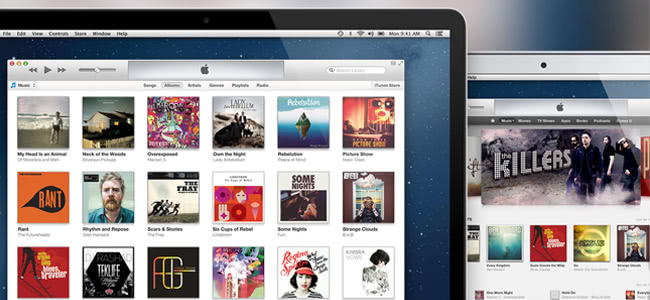You’ve been there. You catch a snippet of that new Beyonce track on the radio or on TV and venture into the iTunes store to find it. You hit ‘Buy’ on something you think is the file you’re looking for, wait patiently for it to make its way onto your hard-drive, and lo and behold, it’s the karaoke version.
Normally, this is the part where you seethe with rage, swear to never buy from those swindling cheats Apple again, and possibly even toss your computer off of a tall building, possibly murdering someone in the process, and having to spend the next few years of your life in a prison cell.
Well, Apple is saying no more. The tech giant has now added a new feature to their iTunes store which allows users to “return” goods without giving a reason for up to 14 days after purchase. While presently this only applies to European users, a positive response in the EU could reasonably see it rolled out internationally.
As The Guardian reports, the new refund feature, which was launched secretly this week, appears to be part of Apple’s attempt to comply with EU guidelines from June that stipulate online sellers must offer customers a “right of withdrawal” to any off-premises contract within 14 days of purchase.
[include_post id=”423411″]
The infamous iTunes terms and conditions have now been updated to include a “Right of cancellation”, which states that “if you choose to cancel your order, you may do so within 14 days from when you received your receipt without giving any reason, except iTunes Gifts which cannot be refunded once you have redeemed the code.”
Users were previously able to request a refund for content which had failed to download, but even these were granted solely on a case-by-case basis. For any content which had successfully downloaded, Apple reserved the right to reject refund applications and still does outside of the EU.
Love Rage Against The Machine?
Get the latest Rage Against The Machine news, features, updates and giveaways straight to your inbox Learn more
However, while the news has obviously got fans in a tizzy, music industry pundits and app developers aren’t as enthused, with many concerned that while apps on the app store are protected by “digital rights management” (DRM), letting Apple potentially revoke any download which it refunds, music sales are DRM-free.
Essentially, this means that a user could download a song, request a refund, and keep the song anyway. Some have even questioned whether this could inadvertently open new avenues to fan groups and trolls looking to manipulate the charts, a la making Rage Against the Machine a Christmas No. 1 in the UK.
[include_post id=”430067″]
As PopJustice notes, the new rule means that a band, say, Limp Bizkit, could release an album on Monday, have fans buy the album during its first sales week en masse, knowing full well they’ll be able to get their money back later, and see the album hit the top of the charts on the Sunday. The following Monday, the fans get their money back.
“What are the Official Charts Company going to do? Recall the previous week’s chart?” write PopJustice. The outlet also notes that after experimenting with the new iTunes feature, they found that the music did indeed remain on their computers even after receiving a refund.
“‘Unapologetic Bitch’ remains on our hard drive. Maybe it will disappear in the future. Maybe we need to email the file to Tim Cook? It’s all very strange. If the file stays in your library, does this new iTunes rule not mean that you could buy an album, get a refund, buy another album, get a refund, buy another album, get a refund, and repeat forever or until you’ve downloaded iTunes’ entire catalogue?” they note.
Meanwhile, the changes to EU law which will see iTunes customers who inadvertently downloaded a Skrillex remix of their favourite track get their money back are the same laws that will now see artists selling music online to customers in Europe hit with a new tax bill, as Tone Deaf reported yesterday.



































